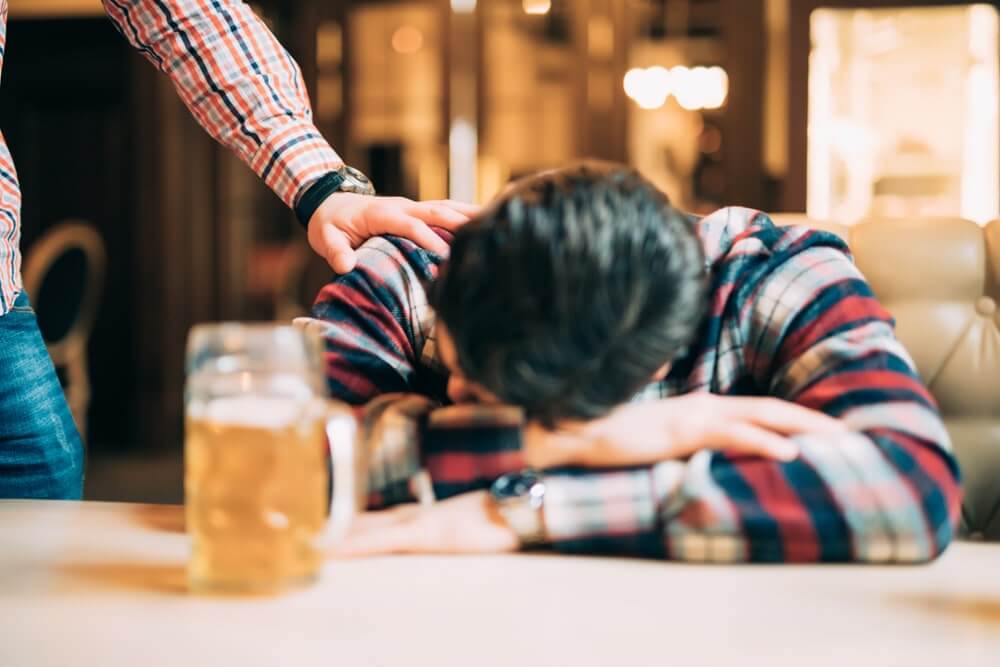How to Help a Friend with Alcohol Poisoning
Poisoning
•
Apr 14, 2021

Knowing how to help a friend with alcohol poisoning can help save a life. An alcohol overdose –– also known as alcohol poisoning –– occurs when a substantial amount of alcohol is consumed in a short period of time (binge drinking), shutting down vital parts of the brain that control your breathing, heart rate, and body temperature. When this happens, the consequences can be irreversible or even fatal.
Though alcohol poisoning can seem like a common college illness, it can happen to anyone and is incredibly serious. Increased alcohol consumption can be one of the tell-tale signs of stress as a way to relieve those feelings of stress and sadness temporarily. In this article, we’ll be discussing the signs of alcohol poisoning to watch out for and the steps to take on how to help someone with alcohol poisoning.
If you notice a loved one consistently participating in unhealthy alcohol habits such as binge drinking, simply having a conversation about safe drinking can help reduce the risk of an alcohol overdose.
What is the first thing you should do if you suspect someone has alcohol poisoning?
Step 1: Seek medical help
Even if you don’t notice any of the common signs of alcohol poisoning listed below, if you suspect someone could be at risk for an alcohol overdose, call 911 immediately.
Step 2: Do not leave the person alone
An intoxicated individual with potential alcohol poisoning is at serious risk of getting injured or choking. Stay with this person at all timesuntil medical help arrives. Keep in mind that blood alcohol content (BAC) can continue to increase even after alcohol consumption has stopped. Never assume that a person can just “sleep it off” and seek medical help as soon as possible.
Step 3: Provide information
Be prepared to provide information to the medical staff about the patient including:
- How much alcohol was consumed
- The type of alcohol
- The time frame of consumption
- Any other substances that may have also been taken
- Patient’s medical history
This way, the respondents will be able to treat the person properly and efficiently. The staff will likely administer oxygen, re-hydration, or other treatments meant to protect the vital organs that may have been damaged –– or are at risk for damage –– due to alcohol poisoning.
If oral rehydration does not take immediately or isn’t possible, IV fluids for dehydration may be administered at the ER if necessary.
What are the signs of alcohol poisoning?
Part of knowing how to help a friend with alcohol poisoning is being able to recognize the signs of alcohol poisoning. To that end, the most common signs of alcohol poisoning include:
- Confusion
- Low body temperature
- Slow or abnormal breathing
- Pale/clammy skin
- The person is not responding, but still conscious
- The person is unconscious
- Vomiting*
*If your friend is unconscious, lie them on their side to prevent them from choking on their own vomit or inhaling the vomit into their lungs, causing a lung injury. Seek medical help immediately by calling 911 or heading to your nearest emergency room.
In more serious cases of alcohol poisoning, the person may experience:
- Complete inability to breathe
- A heart attack
- Severe dehydration from excessive fluid loss
- Choking
- Brain damage or death
Complete Care is Open 24/7 for All of Life’s Dangerous Emergencies
Now that you’re informed on how to help a friend with alcohol poisoning, you can help save a person in need. Complete Care’s emergency facilities are here for you 24/7 for any medical emergency. Our state-of-the-art facilities and award-winning doctors and nurses are well equipped to give patients who are experiencing alcohol poisoning the professional, emergency medical treatment they need.
We have ER locations in both Texas (Austin, Corpus Christi, San Antonio, Dallas/Fort Worth, East Texas, and Lubbock) and Colorado (Colorado Springs). Whether you have an emergency or just a simple health question, we will take complete care of you.
More Helpful Articles by Complete Care:
